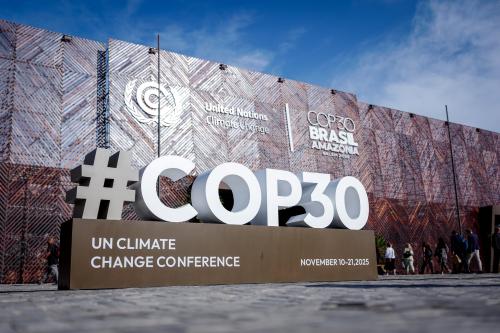The United Nations Framework Convention on Climate Change (UNFCCC)’s 2007 Bali Plan
of Action calls for the next agreement to ensure the “comparability of efforts” across
developed countries while “taking into account differences in their national circumstances.”
Trends in national emissions and economic growth vary widely between countries, as do year-to-
year fluctuations around those trends. This means that achieving similar reductions relative
to historical base years can require very different levels of efforts in different countries. These differences have greatly hampered climate cooperation because it means that commitments
that are similar in effort look inequitable. Further, divergent underlying trends make it
difficult to know the effort that any particular commitment will require. The failure of the G-
8 to set a base year for its agreed 80 percent reduction of emissions by 2050 illustrates the
contention in formulating even collective targets.
The presumption that binding commitments can take only the form of a percentage reduction
relative to historical levels has dimmed the long term prospects for stabilizing the climate, not
least because it alienates rapidly industrializing countries such as China and India. Parties
could negotiate emissions levels rather than reductions relative to base years, but even then
they are not assured of comparable efforts because many things that affect the burden of
achieving the target can happen between the year of negotiation and the commitment period.
The recent financial crisis and global economic downturn are clear reminders of the volatility
in the underlying economic environment in which parties make these emissions commitments.
Additional uncertainties include unanticipated economic growth, technology breakthroughs,
prices for renewable energy and natural gas (a lower-emitting alternative to coal), and
political instability. To properly protect the climate, the international regime should endure
through any number of economic and political fluctuations.
A Price Collar for Major Economies
Here we offer a way forward. Parties could break the stalemate around hard targets and
ensure the comparability of efforts by supplementing commitments on emissions with
commitments for price signals on carbon. Under our proposal, all major parties would need to
show at least a minimum level of effort regardless of whether they achieve their emissions
target, and they would be allowed to exceed their target if they were unable to achieve it in
spite of undertaking a high level of effort.
The Brookings Institution is committed to quality, independence, and impact.
We are supported by a diverse array of funders. In line with our values and policies, each Brookings publication represents the sole views of its author(s).





